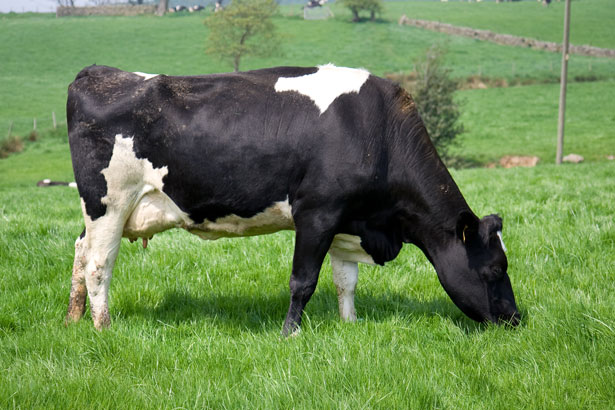For years, I've pondered on the ridiculous idea spouted by vegetarians that since a cow doesn't need to eat another cow in order to create protein for its body, then we shouldn't either. Since cows get all the nutrients they need from plants, then we should also.
I have two rebuttals to that.
The first is: that spinach you're eating didn't eat another spinach plant in order to produce the nutrients it provides in your diet. It made them from sunlight, assisted by water and fertilizer. Since plants get all the nutrients they need from sunlight, water, and poop, you should also.
The second is a little less snarky. A cow is a slow-moving beast with an entirely different digestive system than a human. In order to utilize the nutrients in the plant matter it ingests, it has to regurgitate its food repeatedly, sending that matter to each of four compartments in its stomach.
I have two rebuttals to that.
The first is: that spinach you're eating didn't eat another spinach plant in order to produce the nutrients it provides in your diet. It made them from sunlight, assisted by water and fertilizer. Since plants get all the nutrients they need from sunlight, water, and poop, you should also.
The second is a little less snarky. A cow is a slow-moving beast with an entirely different digestive system than a human. In order to utilize the nutrients in the plant matter it ingests, it has to regurgitate its food repeatedly, sending that matter to each of four compartments in its stomach.
Cows are ruminants, animals with a unique digestive system that allows them to live on otherwise unpalatable foods by repeatedly regurgitating and rechewing them as "cud." The cud is then swallowed again and further digested by specialized bacterial, protozoal and fungal microbes that live in the rumen, one of the four compartments of a cow's stomach. (A Cow's Digestive System, www.teachersdomain.org)If we are going to compare humans to creatures of the animal kingdom, it would be more logical to use felines.
"The internal anatomy of the cat is very similar to that of the human." (Features to Identify in the Cat, http://biology.clc.uc.edu)A lion is a fast and powerful beast. It makes strong muscles on a carnivorous diet. Am I saying humans should be strict carnivores? No. I believe there is significant evidence to support the idea that humans were meant to be omnivores, able to metabolize both animal flesh and plant matter. Show me a lean, strong, fast cow and I'll be willing to eat my words. In the meantime, please pass the steak.

Comments
Post a Comment